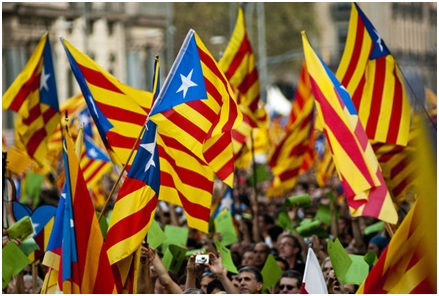While the UK is engulfed in politics within the confines of the isle, the wider nationalist community are searching for a precedent for their own secessionist struggles. Catalan and Basque organisations have been campaigning with the Scots—as have the Flemish, Sardinians and Venetians. Catalonians have shown a particular interest in the Scottish referendum—now more strongly than ever before—and pushing towards a similar vote for themselves. About a year ago, Professor Daniele Conversi, Research Professor at the University of the Basque Country, spoke to us about the relationships between the different movements.
Straight from the streets of the Basque country, I had a chance to snap some of those who have shown support. And as we watch the events unfold tomorrow, it’s worth remembering that they indicate more than the fate of just one state.
You can follow the unfolding events on Google’s specially created site or track them across the collection of sites we collated early last year.



